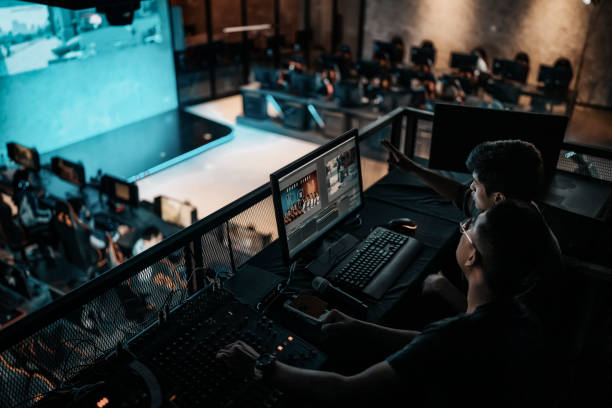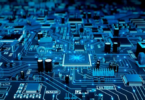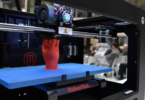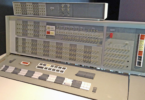7 Ways Computers Will Change Our Lives
Computers have transformed how we work, communicate, and entertain ourselves. No industry today doesn’t use some form of computing in some way or another.
Individuals now purchase items using credit cards that are processed electronically, which allows them to avoid physical stores and save both time and effort.
1. They are a tool for learning
Computers can be used for an array of tasks. They’re particularly beneficial for complex calculations that would take hours to do manually. Furthermore, desktops have increased research productivity as students and scientists can access libraries of information worldwide through them – something computers have enabled students to do faster while making teachers’ lives simpler as a result of this technology.

Modern computers are small enough to fit comfortably into your pocket and easily accessible on mobile phones or other portable devices. They can store all your personal and professional information securely while being easy to update and manage – helpful for keeping track of finances, projects, communications with others etc. Many have even created their own programs for use on a computer – providing an opportunity to learn programming, computer graphics, music etc.
Computers have brought profound change to our lives. Students can study from the convenience of their homes at any time of day or night; lessons may even take place online! Students also participate in courses and seminars held away from local areas. Furthermore, this technology has altered business operations, for instance, reducing human labor requirements on some jobs while eliminating need for supervision/management employees in factories.
2. They are a tool for communication
Computers provide us with an effective means of communication around the globe. They allow people to send emails and instant messaging to their friends, families, and coworkers, as well as watch movies online which saves a great deal of money on movie tickets and CD purchases.
Computer technology can also help make work more efficient. For instance, some companies have adopted videoconferencing as a method of communicating between employees in different locations – saving a substantial amount on travel expenses while helping get answers faster and increasing productivity.
Computers can help people communicate by storing and organizing data. For instance, computers can keep tabs on bank records or shopping habits as well as calendars and lists – this can save people both time and ensure they do not forget anything important.
Computers are also an invaluable asset in medical communication. For instance, MIT has created software that can convert thoughts to speech using electrodes which capture brainwaves and convert them to digital transmissions – giving voice to those without speech and enabling telepathy.
3. They are a tool for entertainment
Computers have become a part of people’s everyday lives and can be found everywhere from large rooms-filled machines to those fitting easily into our pockets, making our world a better place. They play an essential role in transport, health care, banking, education and entertainment among many other fields; yet no field remains unaffected by them.
Computer technology has revolutionized our entertainment consumption. It makes it easier for musicians and filmmakers to release their works to a larger audience, as well as changing our interaction with entertainment by making it more immersive and interactive; games have come a long way since Pong and Space Invaders, offering graphics and gameplay more realistic and exciting than ever before.

Computing technology has revolutionized entertainment in another area through CGI (Computer Generated Imagery). This technology allows films such as Avatar and The Matrix to bring worlds that were only previously possible through imagination. Furthermore, CGI allows actors who have passed on to be immortalised as seen in recent Star Wars movies.
4. They are a tool for business
Modern computers have had an immense effect on society. Businesses now rely heavily on computers for daily operations; without technology many would struggle to survive, both small and large alike. Furthermore, computers have enabled a new form of business known as digital marketing that allows companies to reach customers worldwide via the internet and social media platforms; meaning their products can now be sold globally.
Computers have made managing company data simpler. For example, computers can store sales and inventory information in databases to help businesses make informed decisions regarding products and services they offer. In addition, computers can analyze sales data to help businesses enhance product offerings while increasing revenue streams.
Computers offer another advantage for people living with disabilities: helping Stephen Hawking speak. Furthermore, computers can store information that is accessible to blind people using special software and they can share data between devices which is especially beneficial for businesses that operate across multiple locations or for students who wish to access course material from home.
5. They are a tool for health
Computers are used in healthcare to aid doctors in performing procedures more quickly and safely, from controlling lab equipment, monitoring blood pressure and heart rates, alerting staff if anything goes amiss and even providing remote patient monitoring while patients stay at home while being watched over by their physician.
Computers are increasingly being employed in the search for cures to diseases and medical complications, including genetics research. Computers’ ability to quickly process massive amounts of data quickly and accurately allows researchers to map the human genome quickly and identify genetic predispositions to various diseases.
Hospitals rely heavily on computers to manage patient records, schedule appointments and communicate with their patients. Many hospitals also utilize special applications like e-prescribing software programs for specific processes.
The internet has made it much simpler for individuals to locate health information and support groups, empowering them to take an active role in their health care, leading to improved results. Furthermore, people can connect more easily with family and friends – something which reduces stress and feelings of isolation, helping improve quality of life while decreasing depression risk.
6. They are a tool for education
Computers have played an instrumental role in education. They aid both students and teachers with research, as well as communicating among themselves. With this technology, it has also made working from home possible while teaching new skills from around the world – keeping families close.
These are used in schools, colleges, and universities to educate students. Teachers use them to create presentations, use multimedia projects, make learning easier for students, save time entering grades into programs that automatically calculate percentages or scores quickly – saving both teachers and pupils precious classroom time!
Computers have changed how we entertain ourselves as well, with video games becoming more immersive and interactive thanks to computer technology. Their 3D graphics have taken 3D gaming to new heights and provided a more realistic gaming experience than before. Furthermore, computers have greatly enhanced medical care as they allow patients to monitor their own health conditions remotely from home; this has reduced hospital visits while hastening healing at home faster.
7. They are a tool for transportation
Computers play an essential role in transportation applications. For instance, they are used to create maps that help drivers find their destinations more quickly, track vehicle performance and serve as key safety and security components of trains, buses and planes. Finally, computers also help monitor air quality – an integral component of sustainable transport solutions.
technology has revolutionized life for individuals and businesses alike. People can now work from the convenience of their homes while communicating with colleagues and friends via email and social media. Furthermore, Desktops store and process large volumes of information quickly which enables people to get more done faster while making work more fulfilling and enjoyable.
Desktops can be found everywhere in modern society, from tiny mobile phones to massive supercomputers. Computers serve a multitude of tasks ranging from calculating complex mathematical equations, creating music and graphics creation, helping students develop skills in school learning environments as well as recording and storing data which is helpful across multiple industries.





